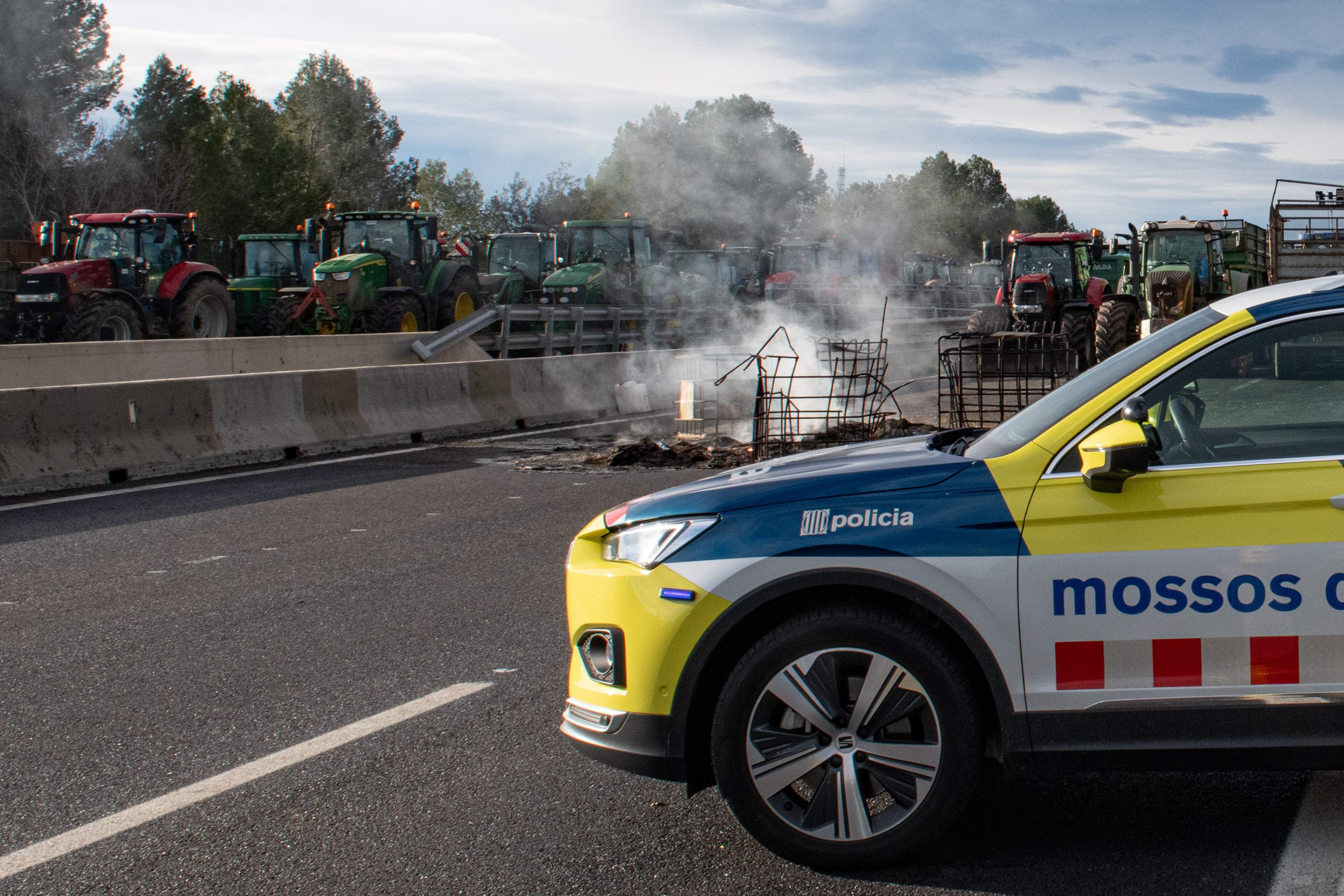Catalan farmers have withdrawn the roadblocks that had been maintained since Tuesday on several highways in Catalonia. They took the decision after David Mascort, climate, food and rural agenda minister for the Generalitat, pledged this Thursday to give them a voice in a special session of Parliament on agrarian policy next week, as well as to implement a series of measures - ranging from the economic to the symbolic - that they have been demanding for some time.
Thus, the farmers have put on hold the mobilizations they have organized over the last three weeks. This Thursday, transporters had called on the the Catalan government to guarantee the free movement of goods after the damages caused by the road closures which began in earnest on February 6th.
The main agricultural union, the Unió de Pagesos, see it as very positive that Maskort is to give them a voice in the plenary session of the Parliament, as well as committing to the restructuring of the Catalan Water Agency (ACA) and the renaming of the Catalan government ministry serving their sector, which will no longer be "Climate Action and Rural Agenda" but rather "Climate Action, Agriculture, Livestock and Fisheries". They assert that the name defines the body and that, therefore, the administration will have more sensitivity for those who work in these primary sectors. Also among the measures agreed to by the administration are new assistance to deal with the drought and to complement those already applied for herbaceous crops.
The Catalan government has, then, given in to the demands of growers and livestockers who have been mobilizing since the beginning of February. Unió de Pagesos coordinator Joan Caball indicated that "now it's time to go home". However, he warned that, "whether the agreements are fulfilled or not, it will be necessary to evaluate. We will be demanding as always".
One of the promises is that the Catalan Water Agency (ACA) will have more "sensitivity" towards farmers, but it has been made clear that the current director, Samuel Reyes, will remain in the job.
The representatives of four organizations - Unió de Pagesos, Jarc, FCAC and Revolta Pagesa - will participate in the agrarian policy debate scheduled for the Parliament in Barcelona next week.
Transporters says AP-7 blockade cost 10 million euros a day
Meanwhile, this Thursday, Catalan transport companies have demanded that the autonomous government guarantee the free movement of people and goods due to the economic damage caused by the road closures during the mobilizations of the last three weeks. They estimate that the closures of the AP-7 motorway generated losses of 10 million euros per day and affected nearly 11,000 vehicles.
In a statement, the major transport company organizations indicated that, for weeks, they have been suffering "with absolute helplessness" from the farmer mobilizations due to the "numerous previously unannounced roadblocks on the main Catalan routes, which are causing serious damage to road transport activity and, therefore, to the economic activity of the country". They defended the right of farmers to demonstrate as long as this does not limit their right to free movement.

